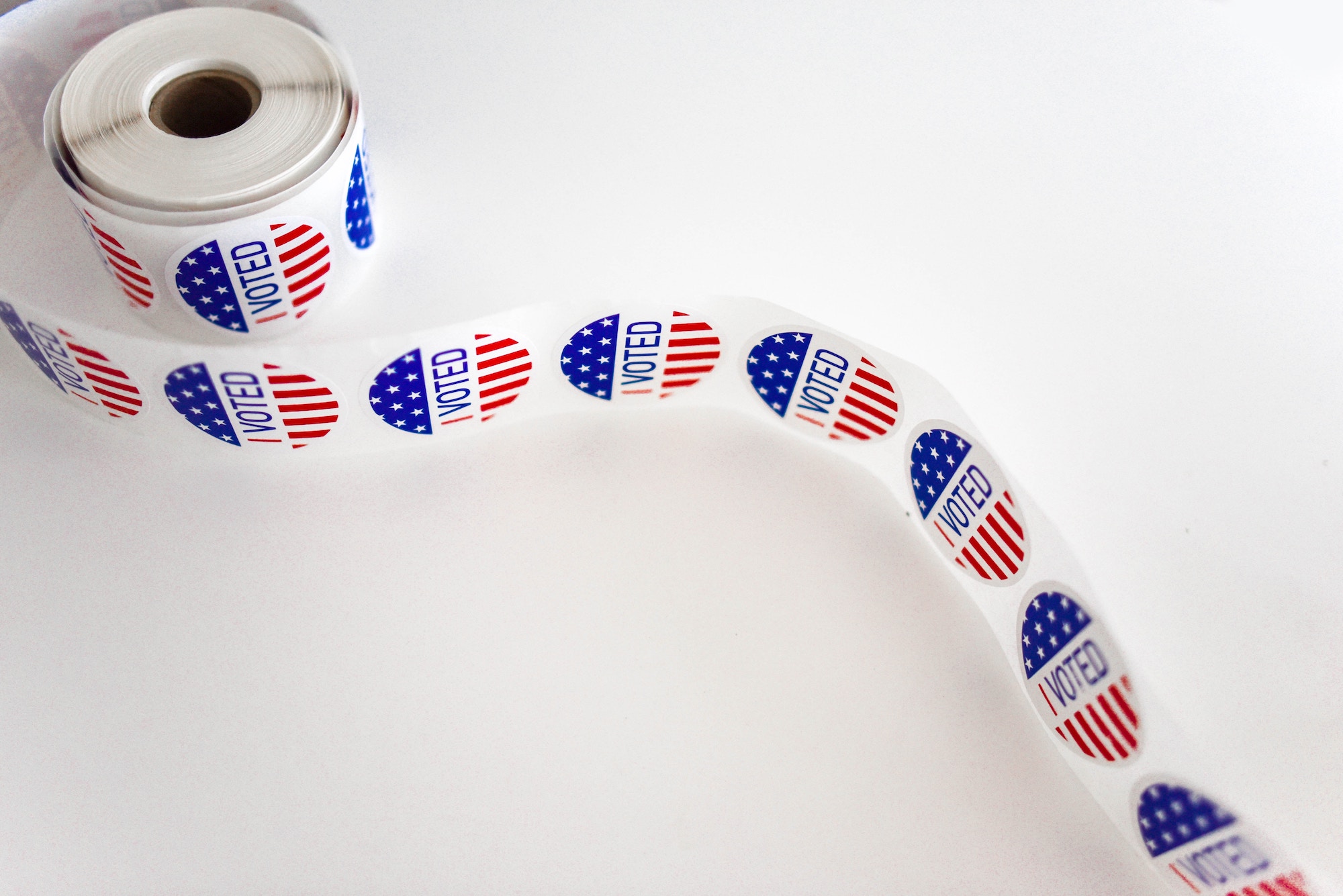Feature
Calling on Companies
To reach high levels of voter participation, all organizations need to embrace civic responsibility

If voter participation is the cornerstone of democracy, American democracy is in poor shape, according to Harvard Kennedy School’s Archon Fung, Winthrop Laflin McCormack Professor of Citizenship and Self-Government. “American democracy would be a lot stronger if all Americans voted. Imagine a future, maybe five years from now, maybe 10 years from now, in which 80 or even 90 percent of Americans voted,” said Fung at the start of a panel discussion on June 27th organized by the Ash Center. “How can we get there?”
Around half of eligible voters in the U.S. cast a ballot during the 2018 midterm elections. In contrast, 80 percent of the approximately 3,500 Blue Cross Blue Shield of Minnesota employees voted that year. CitizenBlue, a 19-year-old civic-engagement initiative led by Blue Cross staff, is largely credited for the company employees’ impressive turnout.
Blue Cross Blue Shield of Minnesota, the Upper Midwest state’s largest health care plan provider, is one of eight companies profiled in a new Ash Center publication titled, Civic Responsibility: The Power of Companies to Increase Voter Turnout. Authored by Sofia Gross, Ash Center 2018-19 Technology and Democracy Fellow, and Ashley Spillane HKS MC/MPA 2018, the report details companies’ efforts to encourage voter participation and was the inspiration for the panel discussion kicked off by Fung. Both authors were present for the conversation alongside panelists Susan Goss Brown, President of the Gap Foundation; Scott Mills, President of BET Networks; and Craig E. Samitt, President and CEO of Blue Cross Blue Shield of Minnesota. Kerry Washington, an advocate for greater civic participation and actress best known for her leading role on the political drama Scandal, moderated the conversation.
The event centered around the conclusion of Gross and Spillane’s report, that companies’ efforts to encourage voter participation, no matter the size of the initiative, have a positive impact on both voter engagement and the bottom line. Company engagement efforts detailed in the report and described by the panel range in scope, from registration reminders to an election day holiday for employees. At the start of CitizenBlue, said Samitt, “the primary focus was essentially sending reminders to associates [employees] to get out and vote. Now it’s much more compressive…CitizenBlue hosts forums at Blue Cross where we invite candidates from both parties. We give folks paid time off to go and vote. We send out magnets to remind them about voting dates. We have photo booths with selfie contests and other things to create excitement and enthusiasm.”
Of course, not every company is prepared to jump straight into a voter engagement initiative and deploy as many resources as Blue Cross. Companies may be deterred by the “stickiness of politics,” noted Goss Brown and feel they lack knowledge or experience. “We [GAP] make clothes and sell clothes. We’re not experts in voting laws and politics,” she said. The GAP Foundation chose to work with non-profit partners to help guide an employee-focused voter registration and participation program. In the end, said Goss Brown, “It’s better to do something than to do nothing. We certainly did not have a perfect plan last year, but it is about taking action, stepping into it, learning as you go.”
In terms of cost, the Ash Center report found that staff support was much more important than a large financial investment. One company surveyed spent as little as $5,000 to host voter registration drives for employees. While it’s important to have CEO-level backing for initiatives, it’s just as important to have employees from across the company participate. “Don’t have your top leadership lead it. Have your teams, your associates step up and form the groups,” advised Samitt.
For all the companies represented on the panel and surveyed by Gross and Spillane, it was critical that voter engagement efforts were non-partisan. The panelists also drove home that civic engagement efforts should be authentic and tied to a company’s mission. Blue Cross Blue Shield believes that healthy citizens are a critical part of a healthy democracy. “It’s important that our civic engagement represents to our customers what we stand for,” said Samitt. Research shows a relationship between civic activity and wellness. “If people feel that they have a voice, that they’re being heard, generally they’re medically and socially healthy,” he added.
“Our [BET Networks] mission is to entertain, engage, and most importantly, empower the African-American community here in this country,” echoed Mills. “And when you think about the issues that are the greatest challenge for our community, whether it’s education, financial wealth, health, wellness, criminal justice, addressing those are contingent upon civic participation.”
“There’s almost an expectation now, which is very different from 20 years ago, that as a company, you should take a stand on something, that your values should translate into some sort of engagement,” observed Washington following the panel’s remarks.
Looking to the future, the panelists and Washington concluded that there are plenty of opportunities for companies to get started or increase efforts. “With the 2020 presidential election part of our daily conversation already, it is clearly not too early for companies to start thinking about how to encourage voters to participate,” said Gross.